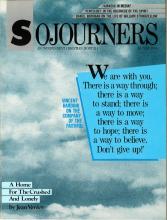When the day of Pentecost had come, they were all together in one place. And suddenly a sound came from heaven like the rush of a mighty wind, and it filled all the house where they were sitting. And there appeared to them tongues as of fire, distributed and resting on each one of them. And they were all filled with the Holy Spirit and began to speak in other tongues, as the Spirit gave them utterance.
Now there were dwelling in Jerusalem Jews, devout people from every nation under heaven. And at this sound the multitude came together, and they were bewildered, because each one heard them speaking in their own language.
And they were amazed and wondered, saying, "Are not all these who are speaking Galileans? And how is it that we hear each of us in our own native language? Parthians and Medes and Elamites and residents of Mesopotamia, Judea and Cappadocia, Pontus and Asia, Phrygia and Pamphyiia, Egypt and parts of Libya belonging to Cyrene, and visitors from Rome, both Jews and proselytes, Cretans and Arabians, we hear them telling in our own tongues the mighty works of God."
And all were amazed and perplexed, saying to one another, "What does this mean?" But others, mocking, said, "They are filled with new wine."
But Peter, standing with the eleven, lifted up his voice and addressed them: "People of Judea and all who dwell in Jerusalem, let this be known to you and give ear to my words. For these people are not drunk as you suppose, since it is only the third hour of the day ...
Read the Full Article

